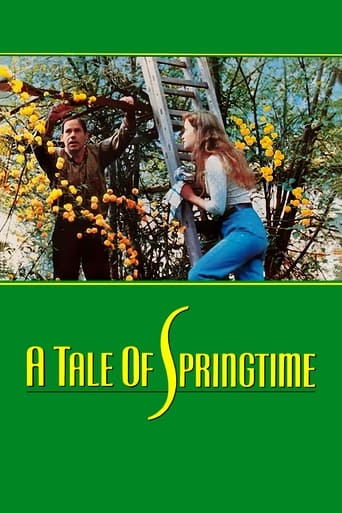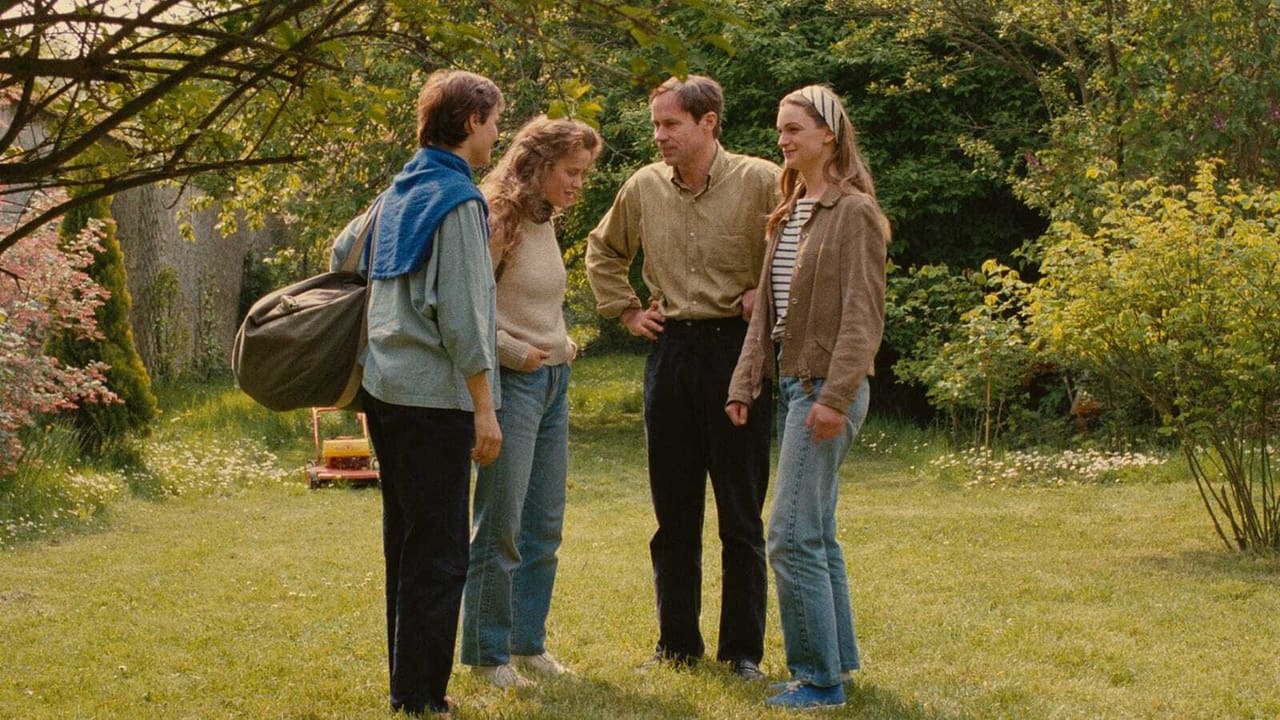cronostitan
More than this rather insignificant movie otherwise minor in the work of the famous director of the tales of bourgeois obedience, it is the DVD supplement which is full of interesting things. Inside the bonus, we find there actually an audio track in which Eric Rohmer is interviewed by Serge Daney of the magazine "les cahiers du cinema": its formal contents this one spends the time to badmouth severely against these public services which do not defend everything at all the true and rare art, the one who is not bounded to the masses...Very aggressive, the french author tackle here these new financiers who act themselves as producers without knowing anything about the job, and furthermore with only pecuniary purposes than favor, besides, the French State, unlike what we would imagine at first sight. How ambitious works and in priori non-commercial can thus fight for themselves and beings view by a decent number of spectators ?Over and above the fact that Rohmer laughs here at him even when he reveals to depend sometimes on certain stuck-up tendencies which are ready to see any production since this one is ignored by the run-of- the-mill, as well as the subsidized theater which is especially according to him and above all of the " rigged theater "...It is thus unusual to see such a monument cinema so angry by making people come down of their cloud and furthermore, not confident in its laurel wreath such as many, many, of these others realisators, we shall learn an infinity of these good lessons between the lines of this interview (which dates nevertheless from 1990) very prophetic indeed, which also plans the development of those outer media supports from now such as the laser disc, which however will never replace, in reality, the public of a cinema.If "Spring tale" is in reality a rather painful huis-clos in which there's happen strictly nothing - and especially endowed with a heroin so charismatic as a Kantian heifer in rest-, we shall thus comfort each other easily with words rather punk, very incisive, and essentially anti-social which will amaze on behalf of this so well raised so well brought up director à l'accent de Neuilly, as we say in France!Bourgeoisie forever...
The_late_Buddy_Ryan
We first see our protagonist, Jeanne, outside a modernist high school building whose name—"Lycée Jacques Brel"—suggests an institution devoted to the study of love and longing as well as the realms of higher thought. That's what Rohmer has in mind, of course. In an extended prologue, we learn that Jeanne is at loose ends; her fiancé's out of town, she's creeped out by his messy apartment when he's not there and she's lent her own place to a country cousin who needs to stay an extra week. Natacha, a music student she meets at a party, extends an invitation. No surprise that these attractive young women talk fluently and at length about their family histories, their habits and opinions; later on, when Natacha's father, Igor, and his younger girlfriend, Eve, join in, the talk becomes even more rarefied—a casual question about Jeanne's teaching methods turns into a brief refresher course on Kant's transcendental idealism. And as usual, this talk has an undertone of intrigue and seduction; Natacha has scouted her new friend as a possible replacement for Eve, whom she despises. It takes some maneuvering and a strategic tantrum to get Igor and Jeanne alone together in his secluded country house, but there's not much at stake emotionally for either of them and not much of a payoff for them or for us. Despite a promising start, I felt that the sly, noncommittal ending makes this one of Rohmer's less satisfying (as opposed to edifying) films. Apart from the better known titles with women's names in them (Claire, Maud, Chloë (aka "Love in the Afternoon"), Pauline), I'd also rate "The Aviator's Wife," "The Good Marriage" and "Boyfriends and Girlfriends" as well as the other seasonal tales ahead of this one.
writers_reign
Eric Rohmer has a lot to answer for; he has probably inspired more inept would-be film directors than anyone living. The problem is that you watch a Rohmer film - and A Tale Of Springtime is a prime example -and say to yourself, Jeez, I could do that and whilst the more mature and well-balanced leave it at that far too many untalented persuade the equally ungifted in charge of doling out Lottery money that they COULD do it and we wind up with far more banjo pics than we need.Rohmer's style - and I use the word loosely - is to cut abruptly a beat, or two or three, before a scene reaches a natural conclusion, pad out the story, when he deigns to provide one, with meaningless shots - in this case a country road viewed from the perspective of a car driver/passenger which contributes less than nothing to whatever is going on - or even better he'll have two people in a car - again as here - and one will give a direction like 'turn left at the river' and in the next shot they have, presumably, reached their destination some 35 miles away, the car is nowhere in sight, they are in a garden and we have to ASSUME the garden belongs to the cottage to which they were driving. More? Okay, how about a rambling philosophical discussion over dinner, four main actors who seem to be reacting to dialogue/situations from at least four different and unconnected films and a 'missing' necklace ultimately located in one of the most improbable and risible scenes in cinematic history.On the other hand they'll love it in the Groves of Academe and in those Pseuds Corners otherwise known as the 'culture' programmes on television. If you like disciplined film-making, a strong story told in the 'old-fashioned' grammatical way, i.e. Master Shot, Long Shot, Mid Shot, Two-Shot, Three-Shot seamlessly interspersed with Fades, Dissolves and Cuts then this one will give you nightmares.
Fiona-39
This is not my favourite of the 4 Season's tales - I prefer both Autumn and Summer to this one. And it is almost a master class in deficiencies in the British education system, when the main characters can (very convincingly) argue the differences between Kantian perception over lunch, and when Jeanne, the teacher, defends philosophy at secondary school as teaching you how to live. And indeed she seems to be fine with a rather strange situation, being essentially courted by a daughter on behalf of her father (and in fact Rohmer takes up this theme again in Autumn when a woman does date someone as a proxy for her friend). It is a film that requires slow contemplation and which doesn't open up its secrets easily - rather like the location of the necklace, the Hitchcockian MacGuffin which is but a pretext for the poisonous atmosphere between the two girls and whose eventual revelation changes nothing in the basic situation.


 AD
AD




